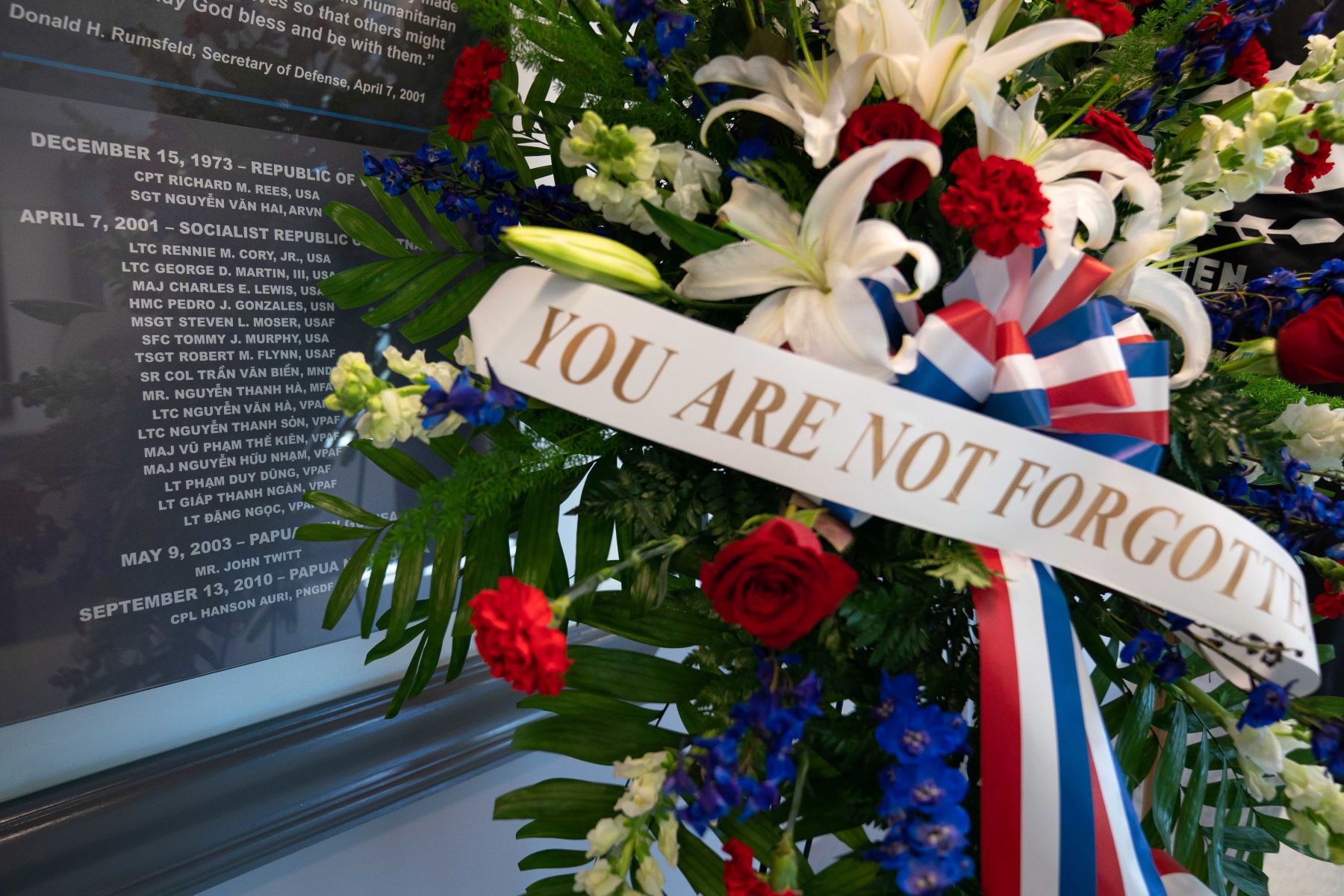
Kelly McKeague is director of the Defense POW/MIA Accounting Agency.
Our nation sets aside Memorial Day for the express purpose of honoring the more than one million men and women who have fallen in combat serving our country, remembering their supreme sacrifice.
Most cannot be found in history books or documentaries, and their acts of heroism are lost to time. For the tens of thousands of families whose loved one lies either where they fell in battle or in a cemetery beneath a marker that reads “Unknown,” Memorial Day amplifies their uncertainty and quest for answers.
This Memorial Day, it is important to recognize that more than 38,000 Americans still unaccounted for from World War II to the conflicts in Iraq are estimated to be recoverable. The United States of America has a sacred obligation, and a moral imperative, to ensure we steadfastly endeavor to search for, recover and identify their remains. This is the mission of the Defense POW/MIA Accounting Agency, or DPAA.
This past week, among the more than 700 military and civilian professionals entrusted with this solemn duty, an investigation team operated with our South Korean partners, a recovery team completed its excavation work on a Belgium farm, and four recovery teams deployed to the jungles of Laos. Whether a civilian historian or scientist, Navy odontologist, Army mortuary affairs specialist, Marine explosive ordnance disposal technician, or Air Force logistician, all of us are committed to providing both the fullest possible accounting of those missing from past wars as well as answers to their families.
First and foremost, we do so through the cooperation of 46 partner nations across the globe, who themselves recognize the humanitarian nature of our work. We also partner with more than 100 universities and non-governmental organizations, thereby expanding our capabilities in historical research, fieldwork and forensic science.
We employ technologies to improve our efforts such as geographic information system mapping to geo-reference where a soldier might have gone missing against satellite images of modern terrain. We also use isotope analysis to differentiate remains, which is helpful for those that are commingled. Innovative DNA advancements by the Armed Forces Medical Examiner System, another of our strategic partners, provide an incredible line of evidence in identifying missing personnel.
While the global pandemic continues to present challenges to executing our noble mission, we are adapting and overcoming them. When DPAA teams were restricted from traveling, our strong partnership with a former enemy was the basis of Vietnam unilaterally conducting nine excavations looking for remains of missing U.S. service members. This past January, the first DPAA team to deploy since the pandemic excavated a complex crash site in Cambodia, while maintaining their health as well as that of our Cambodian partners.
Despite DPAA scientists having to operate in shifts to adhere to health and safety protocols, in fiscal 2020, we accounted for 120 formerly missing persons — 82 from World War II, 36 from the Korean War, and two from the Vietnam War. In the current fiscal year, we have accounted for 94 missing service members to date.
DPAA’s worldwide mission is challenging and complex, but essential. Undoubtedly, the numbers of those missing from our nation’s past conflicts are daunting, but they are so much more than just numbers. Each has a unique story of service and sacrifice, with memories that transcend decades of time, and a loss that leaves an enduring void in life and heart across generations of American families.
I recently attended the military honors burial of a sailor lost aboard the USS Oklahoma on Dec. 7, 1941, whose remains we identified last year. His 86-year-old sister, who was 7 at the time of her brother’s loss, shared a letter their mother wrote to the Navy in November 1943 after receiving his Purple Heart. She wrote, “Eddie always said from childhood, ‘A flag not worth fighting for wasn’t worth living under.’”
As Memorial Day 2021 soon passes, and long after flags and flowers are removed from the graves of those who fell in battle, please remember there is a sacred promise being fulfilled each day. It is a covenant our nation made with its citizens who were sent to war, gave the last full measure of devotion, and have not returned. DPAA will continue to steadfastly find and identify their remains on behalf of their families, comrades in arms, and those serving in uniform today.
Inscribed on a wall of our main laboratory and overlooking the forensic tables upon which remains are analyzed is a timeless quote from President Calvin Coolidge: “The nation which forgets its defenders will itself be forgotten.”
Through their solemn work and dedication, the military and civilian members of DPAA strive never to forget. Furthermore, the iconic, black and white POW/MIA flag of the National League of POW/MIA Families and its entreaty, “You are not forgotten,” serves to remind all Americans that our nation’s freedoms and liberties were paid for by their ultimate sacrifice.
— The opinions expressed in this op-ed are those of the author and do not necessarily reflect the views of Military.com. If you would like to submit your own commentary, please send your article to [email protected] for consideration.
© Copyright 2021 Military.com. All rights reserved. This material may not be published, broadcast, rewritten or redistributed.
